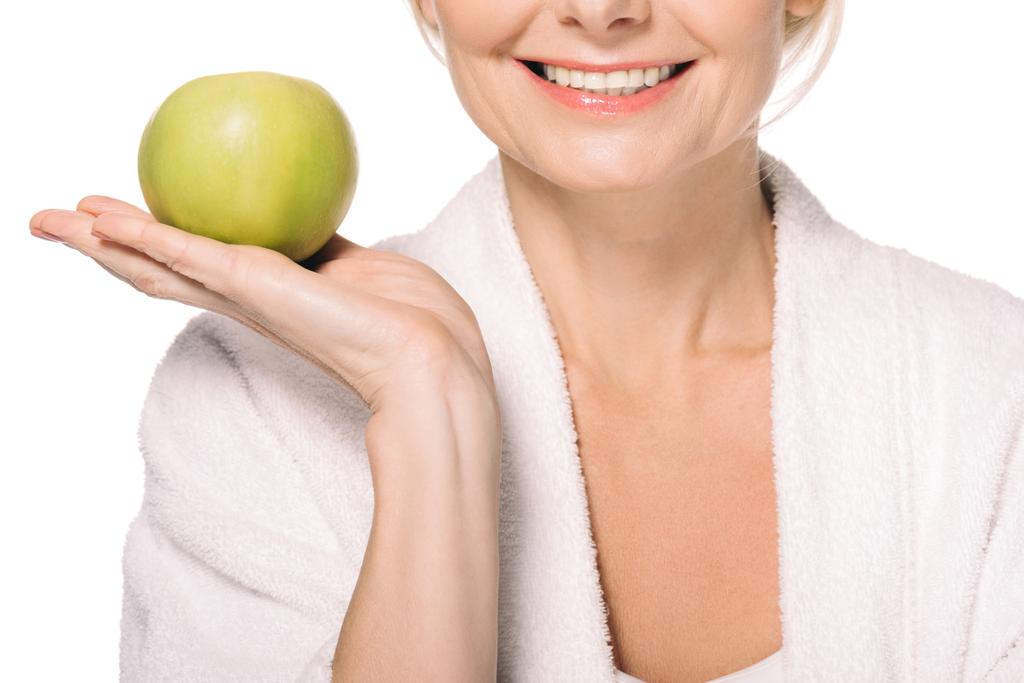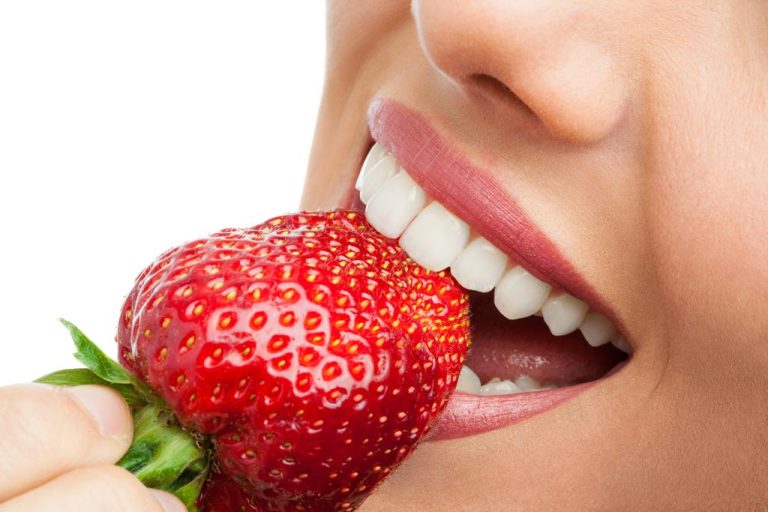When it comes to sweets, most people realize that they are bad for your teeth. But who would have thought that the following foods would do the same?

1. Bad for your teeth: spinach, chard, beetroot and co.
Spinach, chard, beetroot, sorrel or rhubarb are true all-rounders in the kitchen. They provide us with valuable vitamins, such as vitamin K. Spinach and chard are also rich in potassium. However, the healthy all-rounders often cause teeth to feel rough after eating. This is due to the oxalic acid, which is found in relatively high concentrations in these foods.
Oxalic acid removes the calcium from the tooth and thus promotes erosion. In addition, oxalic acid inhibits the absorption of iron, magnesium and calcium from food. In addition, oxalic acid can be toxic in high concentrations.
Oxalic acid can promote the formation of kidney stones and should therefore be avoided by patients with kidney disease.
2. Bad for your teeth: honey
Honey is definitely a healthier option for the body than refined sugar. It has a positive effect on heart health and even lowers blood pressure. However, sweetening with inferior honey diluted with sugar is just as harmful to the teeth as sweetening with industrial sugar.
Due to the stickiness of the honey, it also sticks to the tooth for a particularly long time and can therefore cause tooth decay. According to the latest studies, the dental insurer Dentolo knows that high-quality natural honey works against the formation of caries-causing bacteria.
It contains so-called inhibe (inhibitors), which are actually quite good for dental health. In addition, high-quality, natural honey helps with gingivitis, as it has an antibacterial effect.
3. Bad for your teeth: smoothies
Smoothies are popular because they are so healthy. They provide many vitamins, minerals and fiber. However, smoothies have two factors in their luggage that are harmful to dental health: on the one hand, the sugar and, on the other hand, the fruit acid.
The ratings for so-called “ready-made smoothies” from the supermarket are the worst. You can read about it at Stiftung Warentest. Here it would be a better decision to make the smoothie yourself.
That way you can at least control the industrial sugar content. However, the fructose and acid remain and are harmful to the teeth. If you still don’t want to do without smoothies, green smoothies are the better choice. They are preferable to fruit-based smoothies for long-term dental health.
4. Bad for your teeth: juice spritzers
Regular drinking of supposedly healthy juice spritzers can severely attack the teeth due to the (fruit) sugar content and the acid it contains. Dental erosion can even go so far as to affect the dentin, i.e. the tooth bone, under the tooth enamel.
If you still don’t want to do without juice spritzers, you should rinse your mouth out with lukewarm water after drinking the spritzer to protect your teeth. Furthermore, the teeth should be brushed promptly after drinking the spritzer. If you wait too long, the fruit acid in the juice of the spritzer will roughen the enamel on your teeth.
If you then go over the tooth with the relatively hard toothbrush, you promote the abrasion of the tooth enamel. In addition, one can say at this point in a figurative sense that constant dripping wears away the stone. If you suck on a spritzer from a straw all day long, the risk of tooth decay increases significantly instead of emptying a glass of spritzer in one gulp.
5. Bad for your teeth: ready-made fruit yoghurts
In principle, ready-made fruit yoghurts shouldn’t be seen as a supposedly healthy snack, but as a hidden sweet that has a lot of sugar in it. In some ready-to-eat fruit yoghurts, the sugar content is so high that it accounts for half of the recommended daily amount.
In contrast, high-quality (natural) yoghurts are characterized by a lot of high-quality protein, calcium and saturated fatty acids. Due to the very high sugar content, ready-made fruit yoghurts can pose a risk of tooth decay and damage tooth enamel.
In addition, depending on the type and manufacturer, a certain percentage of acid is added, which also attacks the enamel. The consumer advice center has evaluated various ready-made fruit yoghurts for their health value and sugar content.
6. Bad for your teeth: Balsamic vinegar, black tea, beetroot, and soy sauce
Some healthy foods can severely stain our teeth. These include balsamic vinegar, which stimulates the metabolism, black tea, which lowers cholesterol, and the all-round beetroot, which has calcium, phosphorus, potassium, magnesium, B vitamins, vitamin C, folic acid and iron in its luggage.
Soy sauce is low in calories and high in protein. However, these acidic foods roughen the tooth enamel and unsightly discolorations can be permanently deposited in the tooth enamel and form patches.
The controversial coffee also has this property. The same applies here: Rinsing your mouth with lukewarm water after eating helps to keep your teeth white.
7. Bad for your teeth: white wine and red wine
The article is actually about healthy food – but as so often in life, the quantity makes the poison: A good wine is not necessarily unhealthy. However, red wine and white wine can severely stain teeth.
But anyone who thinks that red wine stains the teeth much more due to its color and the pigments it contains is mistaken.
White wine is the more intensive cause of tooth discoloration, because it dissolves more calcium from deeper layers of the tooth. Ultimately, and in the long term, this leads to significantly stronger discoloration of the teeth than drinking red wine.
8. Bad for your teeth: spices
Spices support the body positively in every respect. They can inhibit cancer, lower blood pressure, have a positive effect on the cardiovascular system and much more. But spices such as curry, saffron or turmeric can also severely discolor teeth.
The unsightly discolouration is due to the high number of color pigments that leave a color film on the teeth. If the tooth enamel is already roughened before the spices are eaten, the color pigments can be stored permanently.
Ginger and mint can also stain teeth. As already mentioned, rinsing your mouth out with lukewarm water after consuming the spices also prevents ugly changes in the color of your teeth.




